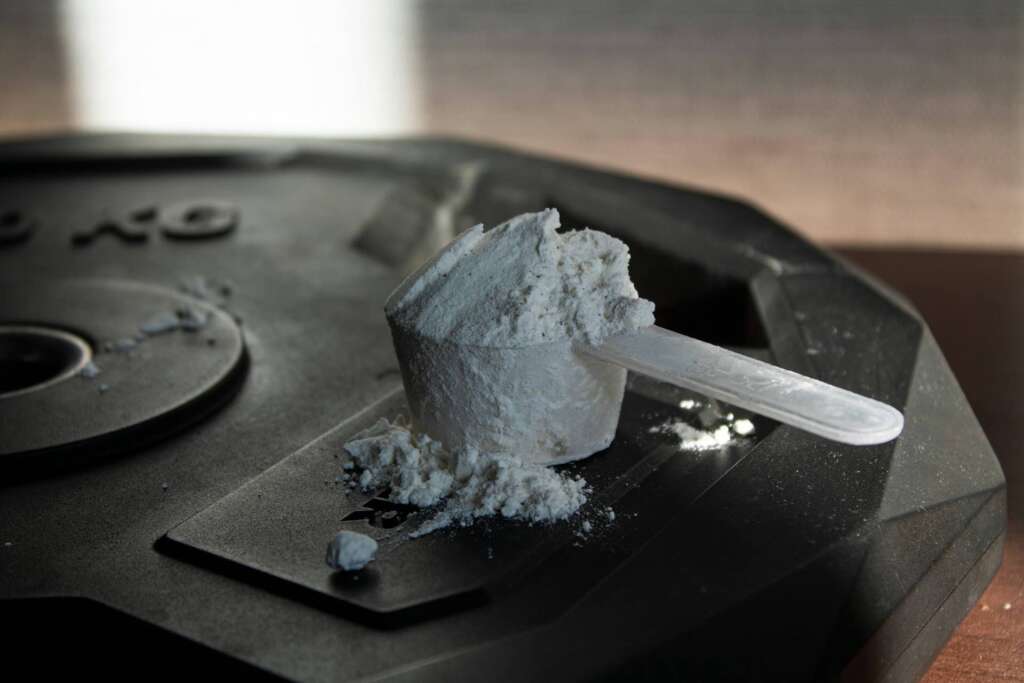If you’re seeking an extra edge in your quest to build a stronger, more athletic, and more powerful body, look no further than branched-chain amino acids (BCAAs). These essential nutrients – leucine, isoleucine, and valine are vital for muscle protein synthesis, energy production, and muscle repair. Since your body cannot produce them, they must be obtained through diet or supplements. Incorporating BCAAs into your regimen can significantly enhance workout performance and recovery, making them a staple for serious fitness enthusiasts.
During intense exercise, your body breaks down muscle protein for energy, leading to muscle fatigue and soreness. BCAAs can mitigate this by providing an immediate energy source for muscles, reducing muscle breakdown and promoting faster recovery. Studies published in the Journal of the International Society of Sports Nutrition have shown that BCAA supplementation can significantly decrease muscle soreness and damage after exercise, enhancing overall workout performance and endurance.
Leucine, in particular, stands out for its ability to activate the mTOR pathway, a key regulator of cell growth and muscle protein synthesis. Research in the Journal of Nutrition highlights that leucine supplementation post-exercise can lead to greater gains in muscle mass and strength over time. Isoleucine and valine also contribute by helping regulate blood sugar levels and providing energy during workouts, according to a study in the American Journal of Clinical Nutrition.
Incorporating BCAAs, alongside other super-supplements such as creatine and magnesium spray, can bestoy multiple benefits, from improved endurance and reduced fatigue to accelerated muscle recovery and growth. Whether you’re an elite athlete or a fitness enthusiast, understanding and leveraging the power of BCAAs can help you push harder, recover faster, and achieve your fitness goals more efficiently. So next time you’re gearing up for a workout, consider adding BCAAs to your supplement stack and experience the difference for yourself. Here’s what you need to know.
What are BCAAs?
Branched-chain amino acids (BCAAs) are a group of three essential amino acids: leucine, isoleucine, and valine. These amino acids are termed “branched-chain” due to their unique chemical structure. BCAAs play a crucial role in muscle protein synthesis, energy production, and reducing muscle breakdown during exercise. Unlike other amino acids, BCAAs are metabolised directly in the muscles, making them readily available for energy and recovery during and after intense workouts.

Why are BCAAs important?
BCAAs are important because they support muscle protein synthesis, reduce muscle breakdown, and enhance recovery. Leucine, in particular, plays a key role in activating the mTOR pathway, which stimulates muscle protein synthesis. During intense exercise, BCAAs are used as a source of energy, helping to delay fatigue and maintain performance. Additionally, BCAAs can reduce exercise-induced muscle soreness and improve overall recovery, according to the Journal of the International Society of Sports Nutrition.
Where can I get BCAAs?
BCAAs can be obtained from both dietary sources and supplements. Foods rich in BCAAs include meat, poultry, fish, eggs, dairy products, and legumes. Supplements are available in various forms, including powders, capsules, and ready-to-drink beverages. When choosing supplements, opt for high-quality products from reputable brands to ensure purity and efficacy. Many athletes prefer using BCAA supplements for convenience and precise dosing.
Should I be taking BCAA supplements?
It depends on your fitness goals and dietary intake. If you engage in intense, prolonged exercise or have difficulty meeting your protein needs through diet alone, BCAAs can be beneficial. They are particularly useful for athletes looking to enhance recovery, reduce muscle soreness, and improve overall performance. However, if you already consume sufficient protein from food sources, additional supplementation may not be necessary. Consulting with a sports nutritionist can help determine if branched-chain amino acids are suitable for your specific needs.
How often should I take BCAAs?
Branched-chain amino acids can be taken before, during, or after workouts to support muscle recovery and performance. Many athletes consume them during workouts to provide an immediate source of energy and reduce muscle breakdown. For optimal benefits, consider taking them daily, especially on training days. Consistent intake can help maintain adequate BCAA levels and support muscle recovery and growth.
How many BCAAs should I take?
The optimal dosage varies depending on individual needs and exercise intensity. Generally, a daily intake of 5 to 10 grams is recommended, divided into pre-workout, intra-workout, and post-workout servings. Higher doses may provide additional benefits but should be approached cautiously to avoid potential side effects. It’s important to follow dosing recommendations and consult with a healthcare professional to tailor intake to your specific needs and goals, according to the Journal of the International Society of Sports Nutrition.
Are there any risks to taking branched-chain amino acids?
BCAAs are generally considered safe for most people when taken within recommended dosages. However, excessive intake can pose risks, including potential imbalances with other amino acids and gastrointestinal issues. Some individuals may experience nausea, bloating, or diarrhoea with high doses. It’s crucial to follow dosing recommendations and consult with a healthcare professional before starting supplementation, especially if you have underlying health conditions or are taking other medications.




